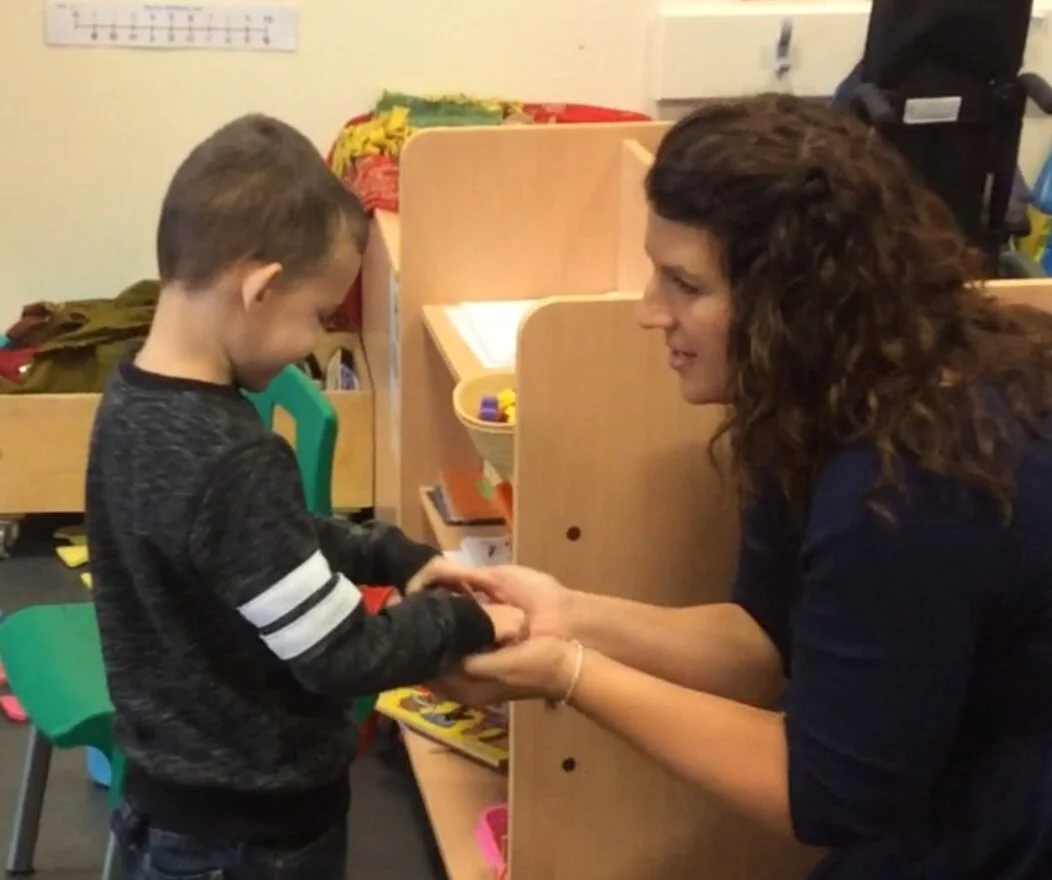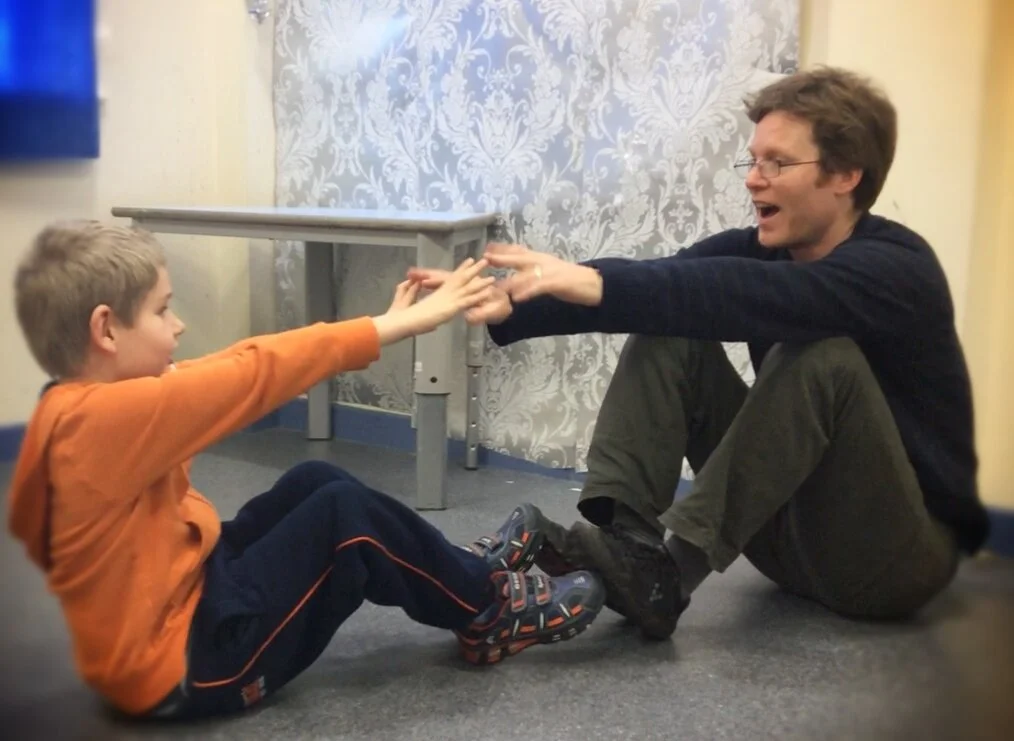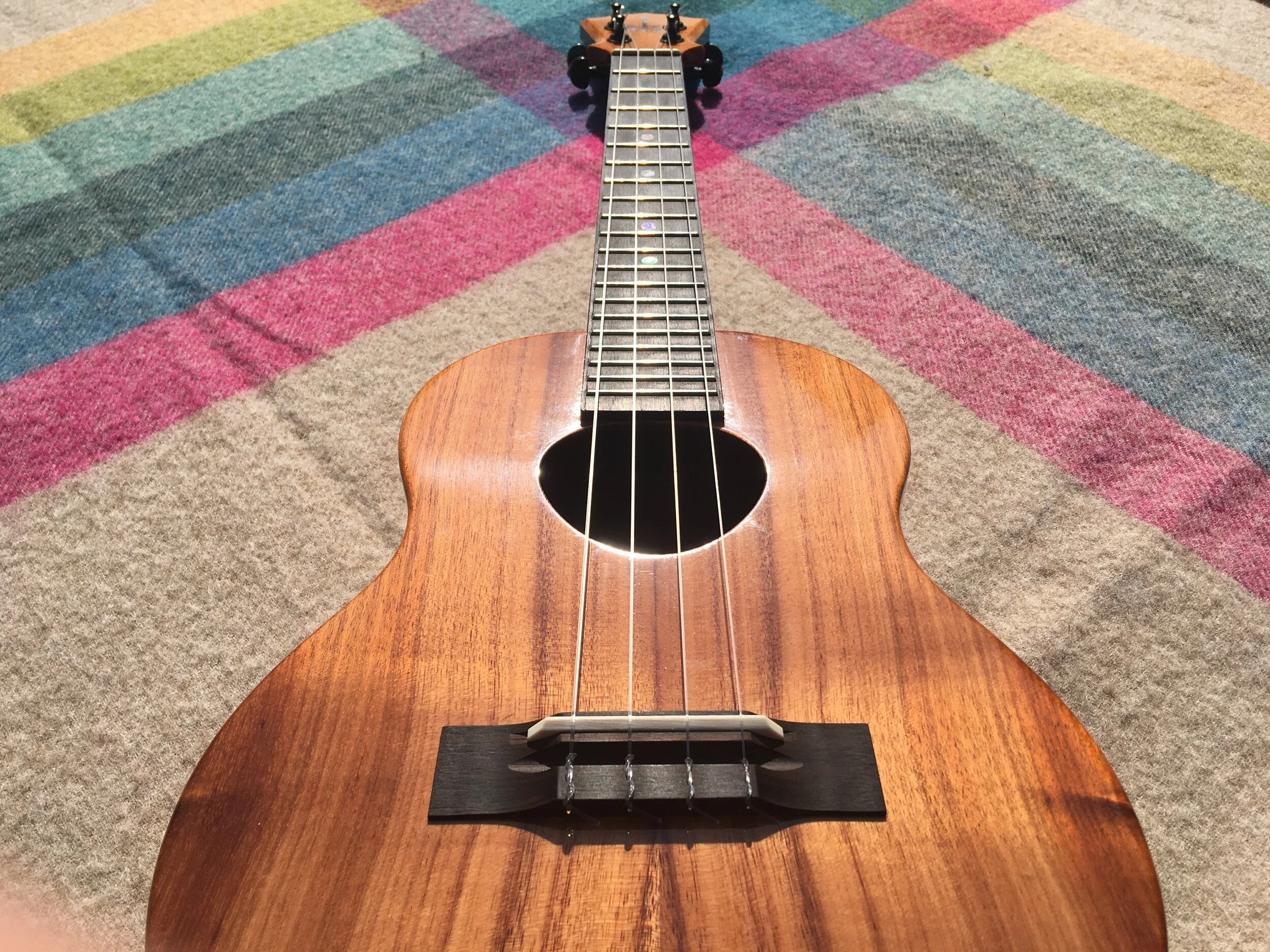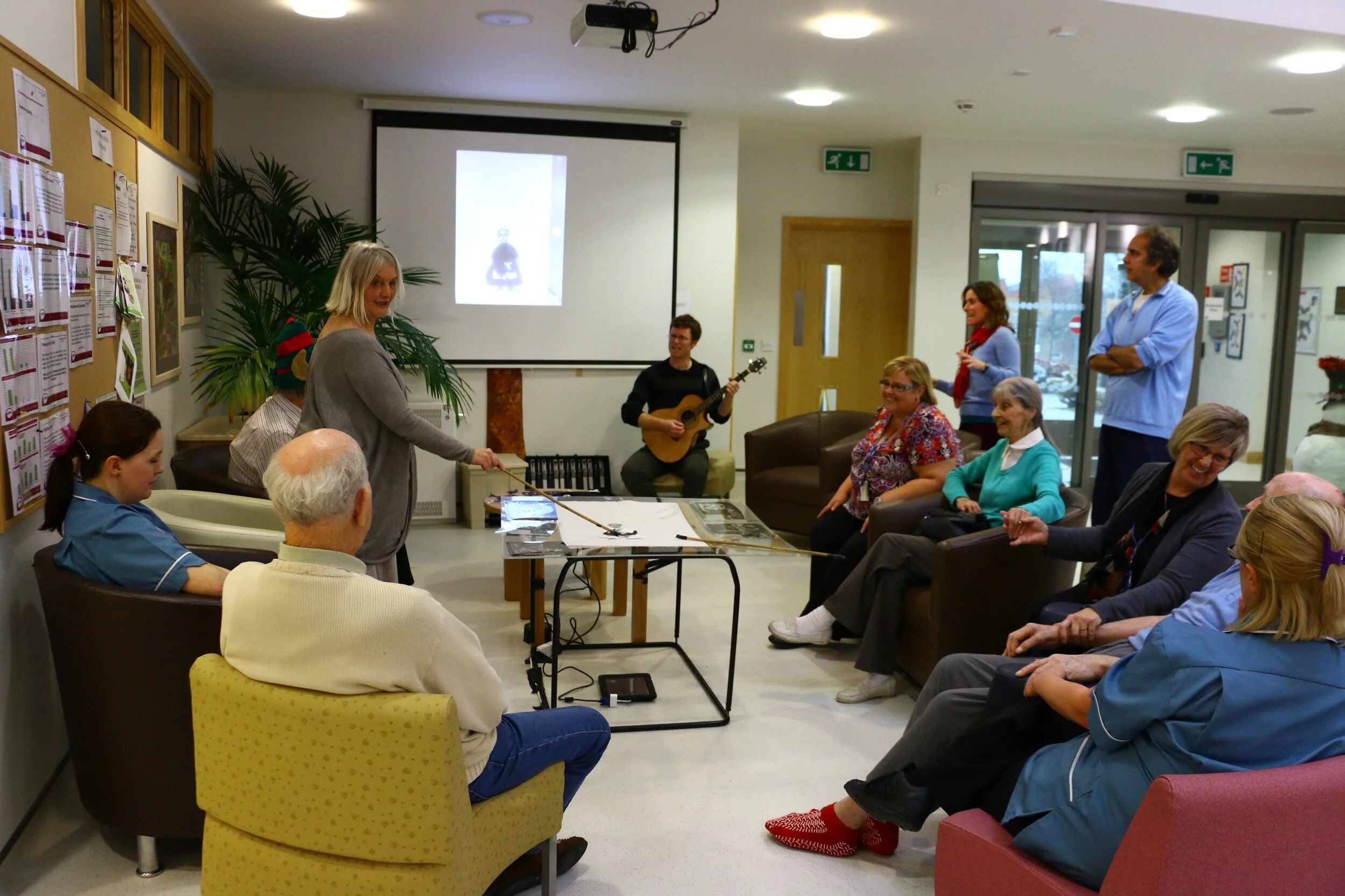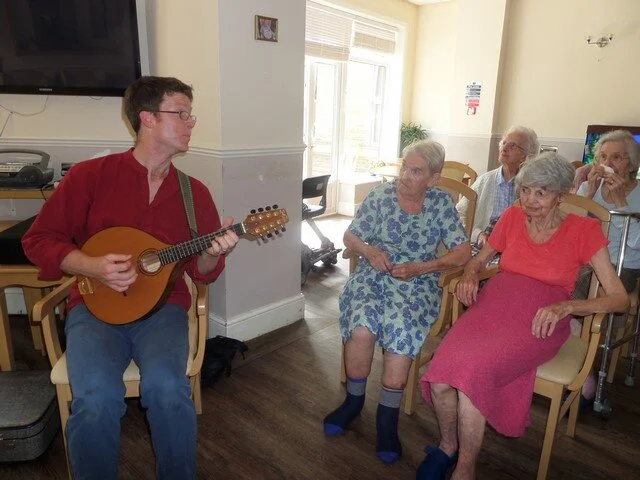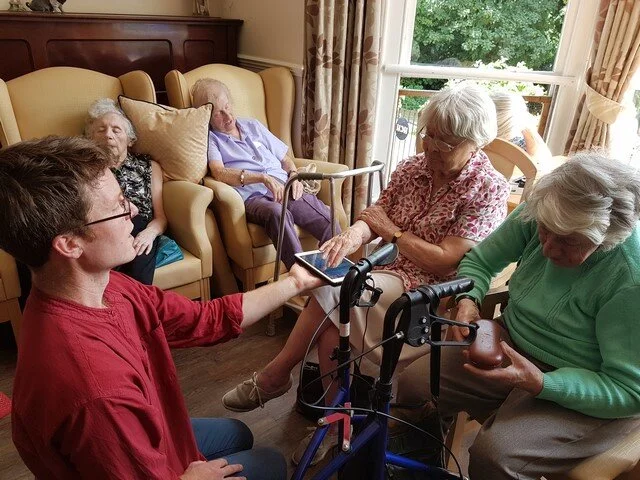In anticipation of a new long-term project, I have developed a new form for recording Intensive Interaction and Rapport-Based Communication.
Progress?
Musical Interaction Handbook: Example Session
The five most popular interactive songs in the order below take around 15 - 20 minutes to play. These songs can be used as the basis for all of your sessions. You can experiment with adding other songs to find the best combination for the children in your group or class. As you become more confident you will be able choose songs in response to offers.
Musical Interaction Handbook: Co-leading Music Sessions
Top Tips 3: Trust is key
Top tips 2: Lower your expectations
Today I was mentoring teachers doing Musical Interactions in the classroom at the Rowan school in Sheffield. The purpose of the project is to embed the practice across the school and I have been working with each class for a single term, teaching a repertoire of interactive songs, how to play the ukulele and how to design and lead the sessions.
Top tips 1: Everything you do should be a response
Rapport-Based Music: Song Functions
What is empathy?
Tips for establishing rapport
Here are some tips for establishing rapport when using Rapport-Based Communication. This understanding comes from my experience of mentoring practitioners working in a variety of learning disability and dementia care settings. Quite often the practitioners is doing nearly everything right but just misses one of these things which results in a lack of rapport.
Mindfulness and RBC Part 4: Beginner's Mind
While non-judging is the attitude we take to our habit of discriminating based on how we value things, beginner's mind is how we deal with the habit of creating expectations based on our past experience and how we then let our thinking and beliefs about what we 'know' prevent us from seeing things as they really are.
Mindfulness and RBC Part 3: Trust
Rapport-Based Communication practice begins with a basic trust in yourself, your practice and your communication partner. Without a basic trust or confidence in yourself and your ability it may is difficult build trust with your partner because you may seem unsure or lack the confidence to be able to provide a stable and reassuring presence.
Mindfulness and RBC Part 2: Patience
Our partners in Rapport-Based Communication are much like butterflies emerging from a chrysalis (or a chick from an egg) in that their social skills can only develop at their own pace. Of course we can help to create the conditions for natural social engagement by making ourselves socially available (and the more we do this the more opportunities there will be for development) but ultimately we must wait for our partner to choose to be with us rather than instruct him or her to do something when we want them to.
New free stuff available
Mindfulness and RBC Part 1: Non-Judging
Mindfulness is an evidence-based approach that is accepted and taught across the UK by organisations such as the NHS. To become more mindful is to become more aware of the present moment, seeing things more as they actually with less habitual judgement and opinion. This is a very useful skill in rapport-based communication practice.
Be Inclusive : Principles of Rapport-Based Music
The third and final principle of rapport based musical communication is to be inclusive. This means that the practitioner should consider each participant’s level of ability and capacity so that participants find the activities both inviting and satisfying to engage in. We know if we are being inclusive when we see participants responding to our offers naturally, of their own volition and the signs of rapport are present - social attention, synchrony and positivity. If the practitioner is not considering the identity of the participants in this way then the practitioner is not doing this practice.
Be Socially Engaged: Principles of Rapport-Based Music
What does it mean to be socially engaged and how does this differ from the first principle of being responsive? To be socially engaged means to try to establish dialogue with the participants, whether musical, verbal or non-verbal. To be socially engaged requires that we develop skill in all areas of communication so that we can engage people in the way that is most appropriate for them.
Be Responsive: Principles of Rapport Based Music
Rapport-based Communication – Defining rapport
3C's of Rapport-based Communication
The purpose of the 3C’s is to provide practitioners with a clear practice for creating rapport that is based on Rosenthal’s three ingredients. By knowing the three ingredients and the 3C’s we can intentionally work for better rapport and offer more experiences of connection, communication and empathy to people who are at risk of social isolation.









